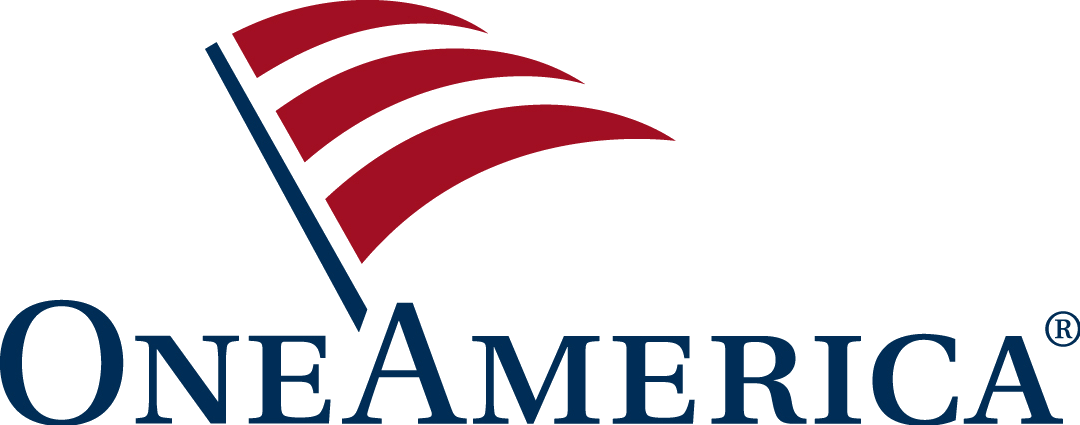Call now for your free quote: 800-891-5824
Glossary of Terms
The following Glossary of Long Term Care Terms will provide you with a greater understanding of long term care, long term care insurance and caregiving-related issues.
Activities of Daily Living (ADLs) Everyday functions and activities individuals usually do without help. ADL functions include bathing, continence, dressing, eating, toileting and transferring. Many policies use the inability to do a certain number of ADLs (such as 2 of 6) to decide when to pay benefits.
Adult Day Care Care during the day for adults, usually at senior or community centers. It is a beneficial option for individuals receiving care at home whose family caregivers work and who need someone to be with them during the day.
Aging in Place Occurs when an aged individual continues to live and receive care at home, instead of being institutionalized.
Alternate Plan of Care In certain circumstances, benefits for services that are not specifically covered under a long term care insurance plan can be authorized.
Alzheimer's Disease A progressive, degenerative form of dementia that causes severe intellectual deterioration.
Assessment A determination of an individual's physical and mental health by a health care professional based on established medical guidelines. For qualified long-term care insurance policies, the assessment must be made by a licensed health care practitioner.
Assisted Living Facility A residential living arrangement that provides individualized personal care and health services for people who require assistance with activities of daily living.
Bed Hold Benefit Will pay for the cost of reserving an insured's bed in a nursing home or assisted living facility while the individual temporarily leaves the facility up to a certain number of days.
Benefit Period The maximum period that an individual can receive benefits for a qualified long-term care event.
Care Coordinator A professional care manager, usually with a background in health care, provided by a long-term care insurance company. The Care Coordinator works with the insured and the insurance company to create a plan of care when a long-term care need arises.
Caregiver - PrimaryThe main person (usually a relative) who is managing and providing care for a person who is incapacitated.
Caregiver - Secondary Others who help to provide care, usually on a part-time basis.
Chronically Ill Individual A person who has been certified by a licensed health care practitioner within the preceding 12 month period as (1) being unable to perform without substantial assistance from another individual at least 2 out of 6 activities of daily living for a period of at least 90 days due to loss of functional capacity or (2) requiring substantial supervision to protect such individual from threats to health and safety due to cognitive impairment.
Claims Offset Language Contractual language within long term care policies that allow the insurance company to apply inflationary benefit increases only to the remaining pool of money amount within the policy.
A policy without Claims Offset language will provide benefits for a longer claim period than a policy with Claims Offset language.
Cognitive Impairment - A deficiency in a person's short or long-term memory, orientation as to person, place and time, deductive or abstract reasoning, or judgment as it relates to safety awareness.
Community-based Services Includes services and programs such as meals on wheels and adult day care, that are designed to help people remain independent and/or in their own homes
Compound Inflation Protection - An option offered on some long-term care policies to automatically increase the maximum daily and lifetime benefits each year by a pre-set percentage on a compounded basis. It is available at an additional premium. Compound inflation protection is a very important benefit for individuals in their 40’s, 50’s, and 60’s.
Contingent Non-Forfeiture - Standard regulatory benefit within all long term care insurance policies to protect policyholders in the event of a significant rate increase. Contingent upon the rate increase the policyholder may elect to cancel its policy and receive a paid-up long term care insurance pool of money equal to the sum of the premiums paid-in to date.
Continuing Care Retirement Community A residential retirement community where a variety of living and medical services are provided to residents who are in need of continuous care and/or supervision.
CPI-Based Inflation An option offered on very few long term care policies to increase the benefits on an annual basis based upon the Consumer Price Index. The CPI-U index has averaged 2.5% since 1983. The CPI-U index is likely to lag behind rising healthcare costs.
Custodial Care Care to help individuals meet personal needs such as bathing, dressing and eating. Someone without professional training may provide care.
Durable Medical Equipment Equipment such as hospital beds, crutches, wheelchairs, ramps and prosthetics used for in-home care.
Elimination Period A type of deductible; the length of time the individual must pay for covered services before the insurance company will begin making payments. Typically 30, 60 or 90 days. The longer the elimination period in a policy, the lower the premium. The elimination period may also be called the waiting period.
Facility Qualifications Specific standards required by state or federal regulations and by the long-term care insurance company (in states where no licensing or certification is required by the state) for a particular type of facility, such as a nursing home or adult day care center, to operate in a state and provide care or services that will be covered by a long-term care policy. Standards may include such things as licensing requirements, type of care services that must be provided, hours of operation, training and experience of caregivers. Facility qualification standards may vary by state and insurance policy.
Free Look Provision A policy provision allowing the policy owner to inspect the policy for a specified period of time, often 10, 15, 20 days and to return the policy to the insurer, if desired, for a refund of the entire premium paid. Qualified long-term care policies are required by federal and state law to provide a free look period of 30 days. If the policy is returned within 30 days, the company must refund all of any premium(s) paid.
Guaranteed Renewable Policy The company guarantees that the insured may renew the policy for life, as long as the insured pays the premiums. The insurance company may increase the premiums on guaranteed renewable policies for all policies of that particular type, but may not increase the premium for an individual policy. A qualified long-term care insurance contract must be guaranteed renewable.
Health Insurance Portability and Accountability Act (HIPAA) Federal legislation passed in 1996 that standardized benefit triggers on long term care insurance policies and specifies certain conditions under which tax-qualified long term care insurance policies qualify for Federal tax advantages.
Home Health Aide A person who is providing home health care services at home under the supervision of a doctor, nurse, or physical, respiratory, speech or occupational therapist. An escort, companion or chore worker is usually not considered a home health aide.
Home Health Care Services for occupational, physical, respiratory, speech therapy, or nursing care. Also included are medical, social worker, home health aide, and homemaker services.
Home and Community-Based Health Care Includes nursing and related personal care provided to patients at home by a home health agency. Policies covering home and community-based care should describe the types of care and the types of agencies that are covered and should specify when and where this type of care can be provided. Home and Community-Based Health Care usually includes home health care, adult day care, and homemaker services.
Hospice Facility A facility that provides care for individuals diagnosed with a terminal illness. While individuals receive care, they are typically not receiving the type of care that will bring about recovery or can be expected to improve their medical condition. Hospice care is intended to provide comfort for the terminal patient and support for their families.
Informal Care Care that is received at home and is provided by family or friends. A care coordinator or medical professional may supervise the care.
Intermediate Care Occasional nursing and rehabilitative care provided by a medical professional based on a doctor's orders. Care may be provided only by, or under the supervision of skilled medical personnel. Frequently, a licensed practical nurse or nurse's aide gives this type of care to an individual who has limited functional ability but does not require around-the-clock care. Often, the person needs help with key functions like managing medication. Care is provided on an intermittent rather than a continuous basis — for example physical therapy. Intermediate Care is excluded under Medicare.
Lifetime Maximum Benefit The lifetime maximum benefit is the maximum amount that a long-term care insurance company will pay for all covered expenses throughout the life of a policy. The lifetime maximum benefit is often described as a "pool of money" that an insured can draw against. When the lifetime maximum benefit is exhausted, the pool is dry and the policy will not pay any more benefits.
Lifetime Home and Community-Based Care Maximum The maximum amount that an insurance company will pay for covered expenses for home health care, adult day care and homemaker services.
Lifetime Therapeutic Devices Maximum The maximum amount an insurance company will pay for covered lifetime therapeutic devices, sometimes called durable medical equipment.
Lincoln Moneyguard A popular hybrid long term care insurance policy often funded with a single premium payment that guarantees long term care benefits as well as a life insurance benefit.
Long-Term Care (LTC) The type of care received when someone needs assistance with daily living due to an accident, illness, cognitive impairment or advancing age. Care is provided either in a facility or at home. Long-term care may include a range of formal and informal services for health, personal care and social needs. Often thought of only as nursing home institutionalization, long-term care can be provided both formally, by medical and health professionals, and informally, by personal, unskilled caregivers.
Long-Term Care Facility — See "Nursing Care Facility"
Maximum Daily Benefit (MDB) The pre-set amount that a long-term care insurance policy will pay up to for each day during a claim period. The maximum daily benefit is specified in the original long-term care insurance policy, but may increase on an annual basis if the policyholder also purchased a benefit increase rider.
Maximum Benefit Period The amount of time that a long-term care insurance policyholder will be able to collect benefits for a qualified long-term care event. The time period is usually specified in years. If an insured had a policy that specified a three-year Maximum Benefit Period but was in care for four years, only the first three years of care would be covered by his/her long-term care insurance.
Medicaid A joint federal/state program that pays for health care services for those with low incomes or very high medical bills relative to income and assets.
Medicare The federal program providing hospital and medical insurance to people age 65 and older and to certain ill or disabled persons. Benefits for nursing home and home health services are limited.
Medicare Supplement Policy (Medigap Policy) A private insurance policy that covers many of the gaps in Medicare.
MoneyGuard A linked-benefit universal life insurance policy issued by Lincoln Financial Group that offers long term care insurance benefits in addition to the guaranteed death benefit. Usually purchased with a lump sum premium.
Non-Forfeiture Benefit A policy feature that provides either reduced paid-up insurance, extended term or a shortened benefit period upon lapse of the policy due to non-payment of all or part of the premium after the policy has been in force for a specified period of time.
Nursing Care Facility A facility providing skilled, intermediate or custodial nursing care which must be state- licensed.
Pacific Life Premier Care A hybrid long term care policy issued by Pacific Life that offers long term care insurance benefits in addition to the guaranteed death benefit. Usually purchased with a lump sum premium.
Partnership Policy A policy that meets certain qualifications and allows the insured to shield personal assets equal to policy benefits received for the purpose of state Medicaid eligibility.
Personal Care — See "Custodial Care"
Pool of Money - see Lifetime Maximum Benefit
Pooled - Insurance benefits are within a single pool of money and are available for all settings of care.
Premium The typically periodic payment that the consumer must make to their insurance company to put a policy in force and to keep a policy in-force.
Rate Class A group of insureds with similar long-term care insurability levels. Extremely healthy people who are less likely to need long-term care are usually placed in healthy classes and receive a preferred rating (lower rates). For example, the price of a long-term care insurance policy typically increases as an individual's rate class decreases.
Respite Care Care that is provided to long-term care patients, at home, by professionals or volunteers for a few hours or a few days while allowing typically informal caregivers some time away from providing care.
Restoration of Benefits Occurs when an insurance provider adds benefit dollars back into a policyholder's lifetime maximum benefit after recovery from a long-term care need for which benefits were paid.
Return of Premium An optional rider for additional premium that returns to the policyholder upon death the total amount of premiums paid into the policy, usually less claims paid.
Riders Addition to an insurance policy that changes the provisions of the policy.
Sandwich Generation A term used to describe individuals who find themselves in the unfortunate situation of caring for their children as well as aging parents.
Shared Care A very popular optional benefit or plan design that allows married couples or partners to share their policy benefits with one another. May be offered for additional premium.
Simple Inflation Protection This benefit provides for an insured's long-term care maximum daily benefits and lifetime maximum benefits to increase each year by a set amount. Increases are always based on the initial benefit. Rider is available at an additional premium. Generally recommended for individuals 65 or older.
Skilled Care Sometimes referred to as nursing care, this is the highest level of care an individual can receive without being confined to a hospital. It is almost always based in an institution. The insured requires continual medical attention from nurses or other licensed medical professionals who are supervised by a physician.
Care must be available on a 24-hour basis. Skilled rehabilitation services such as physical, occupational and speech therapy are generally included in this definition. The Medicare definition of skilled care requires daily care by a physician. Skilled (nursing) care is the only type of care Medicare covers (but on a very limited basis).
See also "Custodial Care" and "Intermediate Care."
Stand-By Assistance Refers to the need for someone to assist another individual performing activities that are basic to daily living. Unlike someone who needs continual supervision (i.e. all the time), a person who needs standby assistance has to have a caregiver within arm's reach of the individual at all times to prevent, by physical intervention as necessary, injury to the individual while the individual is performing the activity of daily living (ADL) (for example, being ready to catch the individual if the individual falls while getting into or out of the bathtub or shower as part of bathing).
Tax Qualifed Policy A long term care insurance policy that qualifies for tax favored treatment under the Health Insurance Portability and Privacy Act (HIPPA). 2013 Long Term Care Insurance Tax Guide.
Therapeutic Devices Devices such as grab bars and ramps, which help an individual perform the basic activities of daily living without another person's assistance.
Underwriting The process of examining, accepting or rejecting insurance risks and classifying those selected, in order to charge the proper premium for each.





